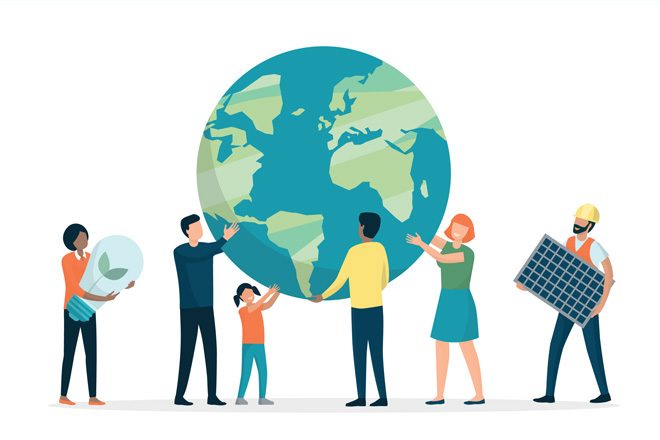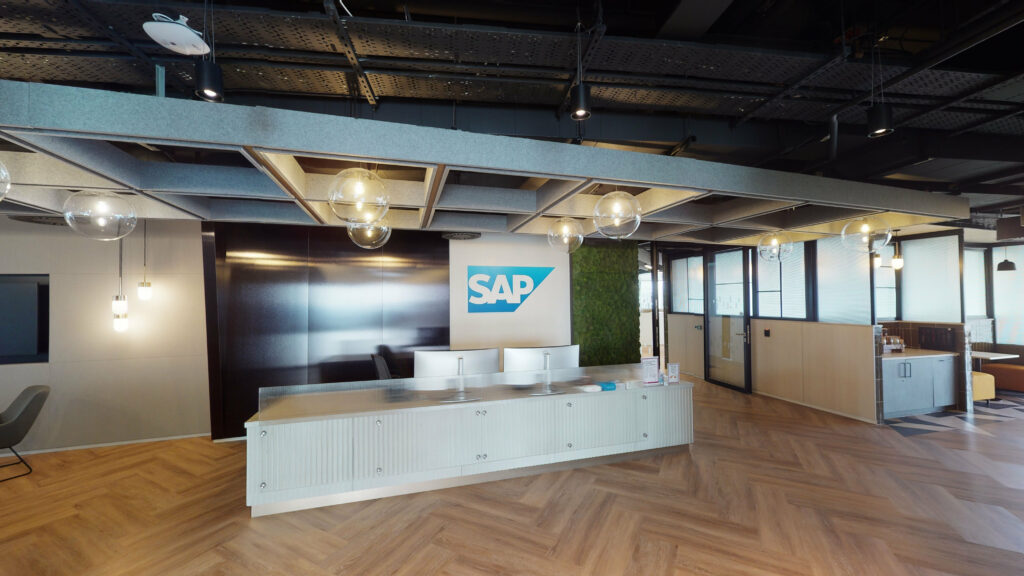Like many of you, it’s been months since I’ve sat in a conference room, debating and discussing business issues with colleagues and customers. In my case, those conversations usually centred around how data companies could work with B2B and B2C manufacturers and suppliers to improve corporate and global sustainability. As you may know from my previous ERP Today columns, for the past couple of years my focus has been on reducing single-use plastic waste and, by extension, improving visibility in global supply chains to help build a cleaner world.
Those conversations are still happening, albeit now through video conference screens where we join each other in home offices, busy kitchens and living rooms. But the change I’ve noticed most on those calls isn’t the setting. It’s the heightened urgency and momentum behind our discussions. There is clear awareness that any coronavirus recovery programme must tackle climate change.
When considering the impacts of climate change, many people don’t think of the coronavirus pandemic as a symptom of a larger problem. However, the world’s leading biodiversity experts strongly believe that the destruction of the natural environment is a driving force behind the outbreak.
There is clear awareness that any coronavirus recovery programme must tackle climate change
According to a powerful article published recently by the Intergovernmental Science-Policy Platform on Biodiversity and Ecosystem Services (IPBES): “Rampant deforestation, uncontrolled expansion of agriculture, intensive farming, mining and infrastructure development, as well as the exploitation of wild species have created a ‘perfect storm’ for the spillover of diseases from wildlife to people.”
The article goes on to warn that unless we stamp out the root cause of the destruction of the natural world, the coronavirus pandemic is likely to be followed by even more deadly and destructive disease outbreaks.
It seems the quicker we can ramp up our collective efforts to deliver a more sustainable, circular economy, the quicker we reduce the risk of even more deadly and destructive disease outbreaks.
Indeed, we don’t have the luxury to prepare for the next pandemic. We are already deep in the midst of the current one, and facing off global turmoil and a recession that has come with it. Our most pressing long-standing global problems have been brought into sharp relief; at the same time, we are faced with new, life threatening challenges. We must respond in real-time to the epic challenges we’re facing.
Businesses taking an agile approach
From a business perspective, COVID-19 is putting great pressure on organisations, forcing them to reimagine operations, business models, and the way they work. This has led to tough decisions for many businesses who are struggling for survival. But there is a silver lining; it has also led to an unprecedented wave of purpose-driven innovations designed to not only ensure business continuity, but also to alleviate the crisis.
There are hundreds of examples to choose from. Take Dyson, which invented and was prepared to produce a new type of ventilator within a fortnight if required. Or carmakers Volkswagen Group which is using its own facilities to produce medical equipment for areas in need. Or tech companies like Apple and Google or SAP, Qualtrics and EY which are teaming up to develop coronavirus tracking tools for governments in their battle against the spread of COVID-19.
From an uncertain present, there is a strong drive for the so-called ‘new normal’ of the future, to value health and wellbeing above all
The nation and the general public want to see these commitments to purpose continue. According to an April 2020 study by the RSA think-tank, only nine percent of people wanted a total return to “normal” after the lockdown; 51 percent had noticed cleaner air and 40 percent felt a stronger sense of local community during the crisis.
From an uncertain present, there is a strong drive for the so-called ‘new normal’ of the future, to value health and wellbeing above all, including the health and wellbeing of the planet.
Bringing the supply chain into the well-being and sustainability equation
For businesses like SAP who run the data networks that power global supply chains, there are two clear imperatives. First, we must adapt to the current situation by ensuring we maintain resilient supply chain systems for our customers and end consumers. We must help connect buyers and sellers to ensure supplies are available when and where they are most needed.
Second, we must accelerate and establish the adoption of circular economy practices and processes that maximise the use of existing resources. Last year, 92 percent of the 100+ billion tonnes of materials used by people were extracted from the ‘natural’ environment. Only 8 per cent came from materials already in use.
The earth cannot sustain this level of consumption without the kind of consequences we’re now facing. This dependency on new resources also undermines our material security. For example, while our most critical care workers struggled to source the PPE equipment that would protect their safety, we already had enough existing materials in the UK to produce over one billion of the PPE needed. We must commit to using what we already possess.
The future of our industry and the world will be defined by our response to this current crisis. There is no better time for businesses to commit to delivering a greener future. By focussing on finding their higher purpose and how they can deliver valuable sustainable experiences to all stakeholders — customers, employees, suppliers, environment, communities and shareholders.






